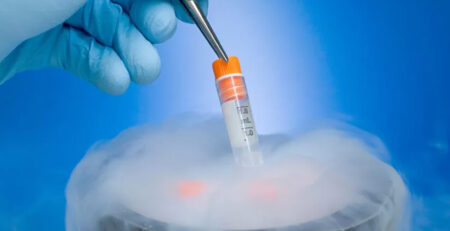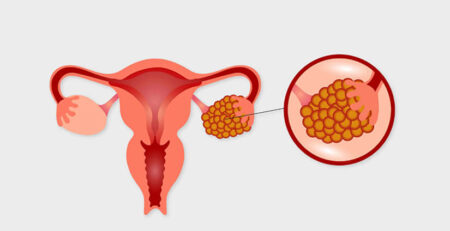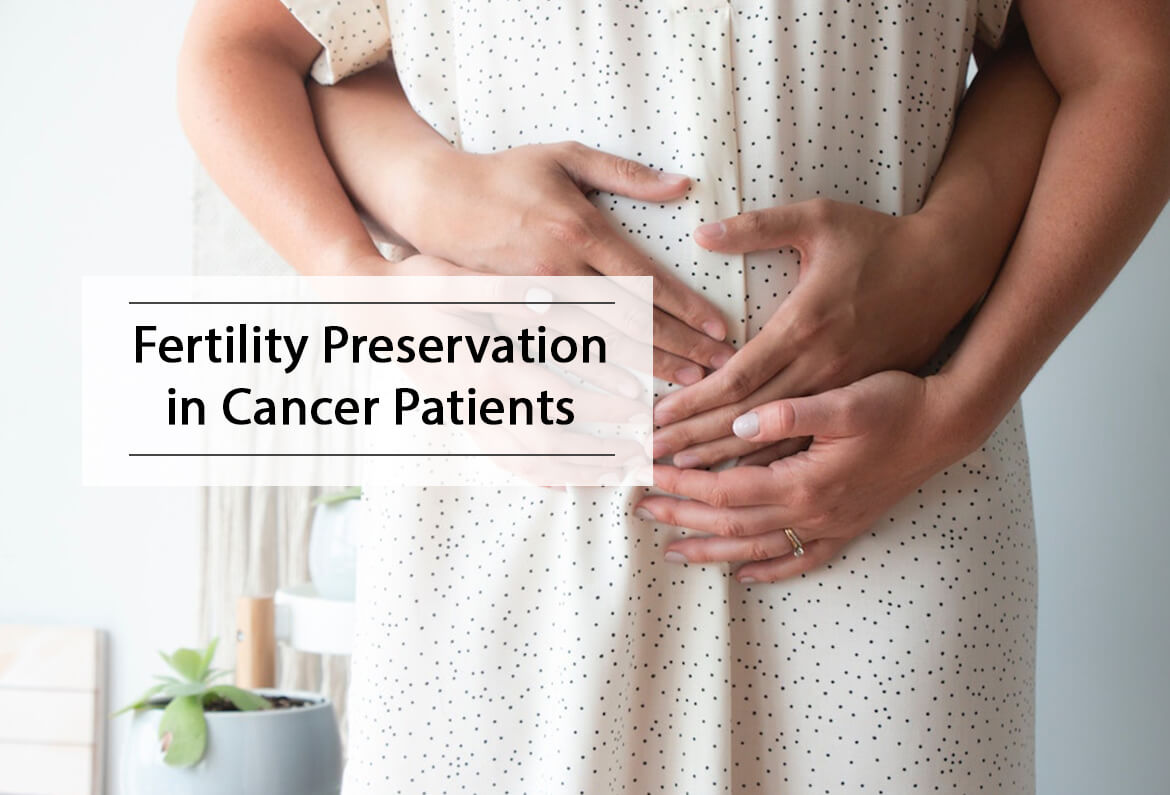Fertility Treatment for High AMH Levels
The journey to becoming a mom is not always smooth. Many women face challenges with fertility along the way. One important factor in figuring out fertility issues is the anti-Mullerian hormone (AMH). Recently, AMH has become crucial in understanding fertility and guiding treatment. But what is AMH? What are the effects of a high level of AMH? Is it possible to get pregnant with a high AMH level, or do you need any fertility treatment to conceive?
There are so many questions, right? But don’t worry! We are here to help. If you are trying to conceive and report a high AMH level, keep reading!
What is AMH?
First of all, we will start with the basic term AMH.
AMH, or anti-Mullerian hormone, is a special protein made by the small sacs in the ovaries that contain eggs. Initially, it helps in the development process by preventing the formation of female reproductive organs in male embryos.
Women produce AMH throughout their lives, but the amount changes as they go through different stages. The level of AMH in the blood shows how many follicles are in the ovaries. These follicles are early-stage eggs, and their number can provide a clue about a woman’s ovarian reserve, basically her fertility potential. Generally, a woman with adequate AMH levels has a better chance of getting pregnant compared to someone with lower levels.

What Are the Normal AMH Levels?
The amount of AMH is determined through a simple blood test that can be performed at any time during the menstrual cycle.
The AMH level is at its peak during the teenage years and remains high until the late twenties. However, as you get older, age plays a role, and your AMH level starts to decrease. Usually, the average AMH level falls between 1.0 ng/mL to 4.0 ng/mL. Generally, women within this range typically have a better response to fertility treatments and a favourable chance of conceiving, either naturally or with assistance. It is considered low if it’s under 1.0 ng/mL. However, it’s alarming when levels drop below 0.4 ng/mL. You need to consult your fertility doctor immediately.
It is considered high if the AMH level exceeds 4.0 ng/mL. It may suggest the presence of Polycystic Ovary Syndrome (PCOS), a condition characterized by an excess of immature eggs in the ovaries. While high AMH levels can indicate a strong ovarian reserve, PCOS can complicate fertility and may require specific treatments. In that case, PCOS treatment is needed first.
Let’s understand it with a table:
| Age | AMH Level |
| 25 years old | >3.0 ng/mL |
| 30 years old | >2.5 ng/mL |
| 35 years old | >1.5 ng/mL |
| 40 years old | >1.0 ng/mL |
| 45 years old | >0.5 ng/mL |
This table indicates that if you are between 25 and 30 and have an AMH level between 2.5 ng/mL and 3.5 ng/mL, the likelihood of getting pregnant is generally higher compared to older women or those with lower AMH levels.

What Does a High Level of AMH Indicate?
If you recently underwent an AMH test and your report indicates high AMH levels, you have many small sacs in your ovaries. When your ovaries are stimulated during fertility treatments, they can produce a good number of eggs, which could lead to the creation of more embryos.
Here is one thing that you need to pay attention to: your AMH can tell you about the quantity of eggs, not how good they are. The quality of the eggs is what really matters when it comes to making healthy embryos and having a successful pregnancy.
Another significance of high AMH levels is that if you are going through fertility treatments like IVF, you might end up with extra embryos that can be frozen and saved for later, which is a big advantage.
But, as they say, excess of everything is bad; having high AMH levels can also be a sign of certain medical conditions and affect fertility in different ways. Any AMH level greater than 4.0 ng/mL is abnormal and a matter of concern. The extremely high level of AMH may indicate the following problems:
Polycystic Ovary Syndrome (PCOS): PCOS, which stands for Polycystic Ovary Syndrome, is a condition where the hormones get out of balance, affecting the ovaries and is a big reason why some women have high AMH levels. It is quite common and comes with a few noticeable signs, like periods that are not regular, higher than normal levels of androgen, and lots of tiny cysts (little fluid-filled sacs) on the ovaries. Because of PCOS, women often end up with higher AMH levels. This can lead to eggs not being released regularly, which makes getting pregnant more difficult.
Ovarian Hyperstimulation Syndrome (OHSS): During fertility treatment like IVF, certain fertility medications are given to stimulate your ovaries to produce more eggs, which is good for a successful IVF cycle. However, the use of these fertility medications can lead to a condition called ovarian hyperstimulation syndrome (OHSS). OHSS happens when the ovaries swell up and become painful, and it can be quite a serious condition.
Diminished Ovarian Quality: A high AMH indicates high ovarian reserve. But this does not mean that all the eggs are of good quality. The compromised quality of eggs could make getting pregnant tougher, whether you try naturally or with treatment.
A lack of Sensitivity to injection FSH: If someone’s ovaries don’t respond well to follicle-stimulating hormone (FSH), which helps eggs grow and mature, it might lead to high AMH levels. This kind of insensitivity can make fertility treatments less effective because the ovaries aren’t reacting the way they should to the hormone.
Fertility Treatment for High AMH Level
Although figuring out the best fertility treatment and managing high AMH levels can be tricky. Understanding that AMH cannot be reduced by medications and there is no one drug for all women with high AMH, you need to consult a fertility doctor for a tailored plan. The treatment options may include:
Lifestyle Changes: High AMH is likely associated with PCOS (Polycystic Ovarian Syndrome) and choosing diet and exercise that can help you achieve normal BMI ( weight for height) would boost natural fertility. This would also decrease stress, improve insulin resistance, settle the hormonal imbalance. No matter what your PCOS treatment path is, exercise is the foundation.
Insulin Sensitizers: If you are dealing with insulin resistance, common in women with high AMH levels, some medicines can help your body better use insulin. This can lead to losing some weight and getting your hormones back in harmony. When everything is more balanced, you might start ovulating on your own again. Your IVF specialist in Delhi will recommend the medication based on your condition.
Tailored Treatment Plans: High AMH levels can affect everyone differently, so it is key to have a plan that is just for you. This means considering things like your age, hormone levels, and health history to ensure that your fertility treatment is tailored perfectly.
Ovulation Induction: If you are dealing with high AMH due to PCOS, then your fertility specialist will start your special medications like Clomiphene or Letrozole that can help get ovulation going. These medicines work to make sure mature eggs are released and intercourse is timed well for improved pregnancy chances.
IVF Treatment: IVF, or In Vitro Fertilization, is a common go-to treatment for those with high AMH levels. It is great because it lets IVF specialists in Delhi have more control over how many eggs are used, reducing the chances of ending up with twins or more. In this procedure, the eggs are retrieved and mixed with sperm in the lab for fertilisation. Finally, the fertilised egg is implanted directly into the uterus. However, it is important to watch closely to avoid ovarian hyperstimulation, which can be a bit too much for the ovaries to handle.
Egg Freezing: Some people decide to freeze their eggs for the future, especially when they have many of them, because of high AMH levels. This is a smart move for those who know they want kids later on but are not quite ready to start their family just yet. But you should consult an IVF specialist in Delhi before making this move.

Take Away!
Your Anti-Müllerian Hormone (AMH) levels can estimate your egg reserve but fertility treatment by expert fertility doctor is needed to be able to design a protocol that can help you achieve pregnancy with simple cost effective treatment initially and one who knows when to move to IVF with a safe protocol avoiding complications of hyperstimulation and helping you deliver a single healthy baby.
If you are considering IVF treatment in Delhi, schedule your consultation with Dr Rhythm Gupta. She will help you understand the importance of AMH and interpret your report to stay informed during your treatment.










